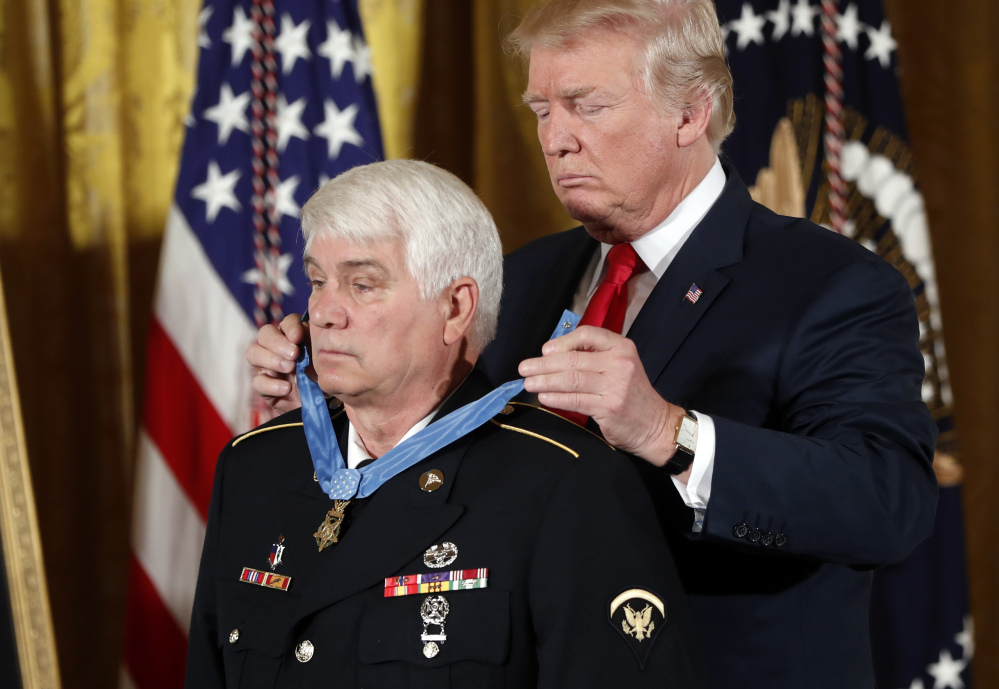WASHINGTON — An Army medic who “ran into danger” to save wounded soldiers during a Vietnam War battle despite his own serious wounds on Monday became the first Medal of Honor recipient under President Trump, 48 years after the selfless acts of bravery for which James McCloughan is now nationally recognized.
McCloughan mouthed “thank you” as Trump placed the distinctive blue ribbon holding the medal around the neck of the former Army private first class. As the president and commander in chief shook McCloughan’s hand, Trump said “very proud of you” and then pulled the former soldier into an embrace.
“I know I speak for every person here when I say we are in awe of your bravery and your actions,” Trump said after describing McCloughan’s actions for a rapt audience including numerous senior White House and administration officials.
Retired Marine Gen. John Kelly, sworn in hours earlier to be the new White House chief of staff, attended.
McCloughan said in a brief statement on the White House driveway after the ceremony that it was “humbling” to receive the medal. Now 71 and retired, he pledged to do his best to represent the men he fought alongside “as the caretaker of this symbol of courage and action beyond the call of duty.”
McCloughan was a 23-year-old private first class who had been drafted into the Army when, in 1969, he found himself in the middle of the raging, dayslong Battle of Nui Yon Hill. McCloughan voluntarily entered the “kill zone” to rescue injured comrades, even as he was pelted with shrapnel from a rocket-propelled grenade, the back of his body slashed from head to foot.
In its announcement last month, the White House said McCloughan “voluntarily risked his life on nine separate occasions to rescue wounded and disoriented comrades. He suffered wounds from shrapnel and small arms fire on three separate occasions, but refused medical evacuation to stay with his unit, and continued to brave enemy fire to rescue, treat, and defend wounded Americans.”
McCloughan, who lives in South Haven, Michigan, said the battle was “the worst two days of my life.”
McCloughan described the shrapnel as “a real bad sting” and recalled, “I was tending to two guys and dragging them at the same time into a trench line.” He said he looked down to see himself covered with blood from wounds so bad that they prompted a captain to suggest that he leave the battlefield to seek treatment.
“He knew me enough to know that I wasn’t going,” McCloughan said.
He left the Army in 1970 and spent decades teaching psychology and sociology and coaching high school football, baseball and wrestling.
Send questions/comments to the editors.



Success. Please wait for the page to reload. If the page does not reload within 5 seconds, please refresh the page.
Enter your email and password to access comments.
Hi, to comment on stories you must . This profile is in addition to your subscription and website login.
Already have a commenting profile? .
Invalid username/password.
Please check your email to confirm and complete your registration.
Only subscribers are eligible to post comments. Please subscribe or login first for digital access. Here’s why.
Use the form below to reset your password. When you've submitted your account email, we will send an email with a reset code.